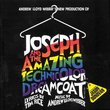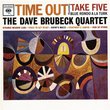| All Artists: Sergey Rachmaninov, Alexander Scriabin, Manuel de Falla, Enrique Granados, Alberto Ginastera, Frederic Chopin, Franz Liszt, Gabriela Montero Title: Gabriela Montero: Chopin · Falla · Ginastera · Granados · Liszt · Rachmaninov · Scriabin [Includes Bonus CD] Members Wishing: 2 Total Copies: 0 Label: EMI Classics Original Release Date: 1/1/2005 Re-Release Date: 9/13/2005 Genres: Dance & Electronic, Classical Styles: Opera & Classical Vocal, Ballets & Dances, Waltzes, Forms & Genres, Etudes, Fantasies, Preludes, Historical Periods, Modern, 20th, & 21st Century, Instruments, Keyboard, Symphonies Number of Discs: 2 SwapaCD Credits: 2 UPC: 724355803924 |
Search - Sergey Rachmaninov, Alexander Scriabin, Manuel de Falla :: Gabriela Montero: Chopin · Falla · Ginastera · Granados · Liszt · Rachmaninov · Scriabin [Includes Bonus CD]
![Gabriela Montero: Chopin · Falla · Ginastera · Granados · Liszt · Rachmaninov · Scriabin [Includes Bonus CD]](https://nationalbookswap.com/cd//l/45/8945/6128945.jpg) | Sergey Rachmaninov, Alexander Scriabin, Manuel de Falla Gabriela Montero: Chopin · Falla · Ginastera · Granados · Liszt · Rachmaninov · Scriabin [Includes Bonus CD] Genres: Dance & Electronic, Classical
|
Larger Image |
CD DetailsSimilarly Requested CDs
|
CD ReviewsTrying something new, or perhaps something old. Michael Stack | North Chelmsford, MA USA | 03/06/2006 (3 out of 5 stars) "I've spent my entire life grappling with classical music. On the one hand, here's a tradition of brilliant and detailed composition, musical complexity and intrigue that demands attention. On the other, it's a form where note-perfect replication is seen as the highest form of expression, where the best way to make a statement is to perform at a level wherein one's individual identity becomes subsumed. And quite frankly, I've always had issue with this-- when I was in elementary school I remember being asked not to "embellish" on arrangements by band directors and as I've grown older, I've embraced improvised musics and developed somewhat of a hostility towards classical music. After all, it seems what's the point? If lack of identity of the individual performer is the key to the performance, then if you've heard one, you've heard them all. And admittedly, this is a bit of an oversimplification-- there IS validity in strong, note perfect performance, there is certainly power in the expression of someone else's work, and if nothing else, the conductor's individual identity is likely to seep through. But it's never seemed enough to sustain my interest. And yet, I've occasionally looked as I read more and more that improvisation and interpretation was a part of the classical tradition until the 20th century, that the performer could carry as much weight as the composer. As such, it was with great interest that I've explored these recordings of Gabriela Montero. My brother pointed me to a feature on Montero on NPR, on her attempts to reintroduce improvisation into the classical tradition, borne no doubt of her love of jazz. And this recording (labelled as "Piano Recital" on the spine) consists of two halves-- the first disc contains relatively straight interpretations by Montero of Rachmaninov (three pieces), de Falla (one), Granados (one), Scriabin (four), Ginastera (three), Chopin (two) and Liszt (one). The second contains a series of improvisations mostly based on compositions by the composers read on the first disc. One thing apparent from the onset is Montero's enormous facilities as a pianist-- her technique is nothing short of superb, and she exerts control over the entire range of the instrument. She seems to have a tendency to favor more frantic and energetic performances (Rachmaninov's "Moment musical in Emin Op. 16 No. 4", Ginastera's "Danza del Gaucho Matrero"), which is really a shame because she does occasionally show a delicate and light touch on more sensitive performances (Scriabin's "Prelude in G, Op. 13 No. 3"). The net result is that by and large while the first disc is expertly executed, it has a tendency towards excess. Montero seems rather aware of her extraordinary technique and isn't afraid to show it, even at the expense of allowing the majority of the record to be frantic, uptempo performances. The second disc of improvisations is a significantly different beast altogether-- rather than a showever of technical facilities (although there is no shortage of them), Montero is far more meditative and romantic in her approach, and while her performance is still firmly lodged in the classical tradition and feel, shades of Thelonious Monk ("on Rachmaninov: Piano Concerto No. 2"), Duke Ellington ("Inspired by Scriabin"), Bud Powell ("Improvisation in Blue") and especially Bill Evans (just about everything) come forth. Still, like the first disc, the material again has a tendency to converge on a single sound, this time in a more ballad form. The music is also not purely classical in a sense-- while Montero does largely work in the classical vocabulary, on occasion a bit of swing begins to infect the perfromance ("On chopin: Prelude in A"). This isn't necessarily a bad thing, and certainly there's validity in modern technique and performance on older pieces, but it something to note. My expectation quite frankly is that Montero is going to be viewed as a curiosity-- the classical world is unlikely to ever fully accept her, and she is not performing in a jazz form. Nonetheless, she is a fantastic pianist and is doing something very few have the nerve to do-- she's trying something new. I'm not totally sold on the performance, but it's a worthwhile listen." Superb recital with interesting bonus disc Oldnslow | Seattle, Washington USA | 10/07/2005 (5 out of 5 stars) "Gabriela Montero's debut on a major label is a complete success. The interesting, varied program of romantic and South American composers is beautifully performed. A bonus disc contains improvisations on classical themes, some of which she performed on the first disc. It too is wonderful, with a totally different feel. While these are true improvisations, don't expect to hear jazz piano swing. This is a classical take on improvisation, in the manner of what the great composers might have done in the past. Wonderful stuff." Gabriela Montero, always a star Felipe Izcaray | Salta, Argentina | 11/21/2005 (5 out of 5 stars) "I have known Gabriela Montero since I saw her play the Grieg Piano Concerto when she was 9 years old. She has always been a superb pianist, and now, finally, the music fans all around the world have a chance to taste her artistry in this great CD set.
I am the Director of the Salta Symphony Orchestra in Salta, Argentina, and on Sept 4, 2004, I had the privilege to accompany Martha Argerich and Gabriela Montero in the same concert. The original program order was Ms. Montero in the first half playing Rachmaninoff's 3rd. Piano Concerto and Ms. Argerich in the second part playing Prokofiev's 1st. concerto and Ravel's Concerto in G Major. Ms Argerich asked us to change the order of the program, so that Gabriela would end the concert. Ms. Argerich wanted to sit in the audience and listen to Montero's interpretation of the Rach 3, a monumental tour-de-force for any pianist (and any orchestra). Argerich's own version of the concerto is legendary, so she knows the piece pretty well. Ms. Argerich's comment after the concert was "This is by far the best Rachmaninoff 3rd. I have listened to in a live performance". These are her textual words. This year, on September 25, when Ms. argerich played again with us (this time Schumann's A Minor and Haydn's D Major concerti), she told me "I haven't forgotten last year's Rach 3 with Gabriela, and I still think it was the best". Gabriela will have her NY Philharmonic debut next March 2006, playing the Paganini Rhapsody by Rachmaninoff. If you are near NY at that time, don't miss it. Gabriela Montero is a sure bet!!!!" |

 Track Listings (15) - Disc #1
Track Listings (15) - Disc #1








